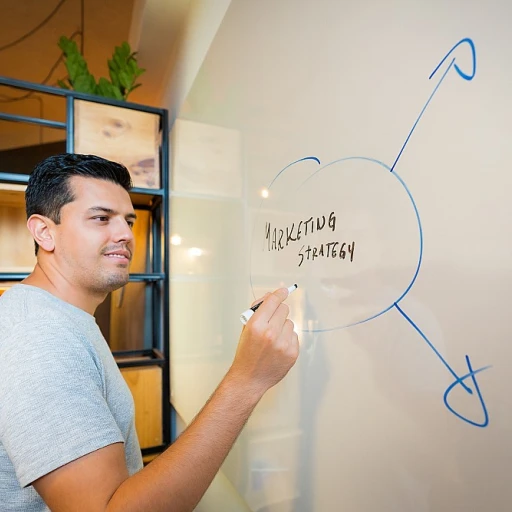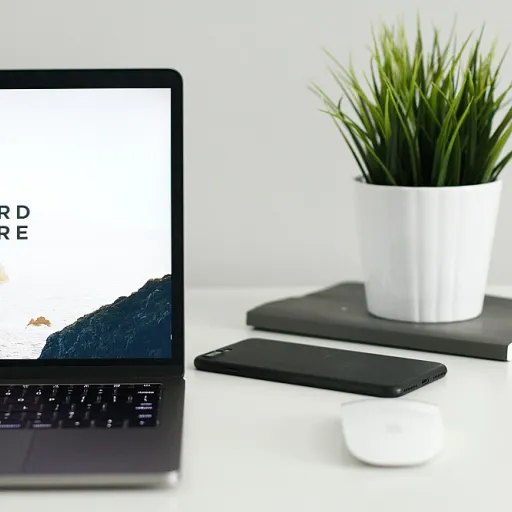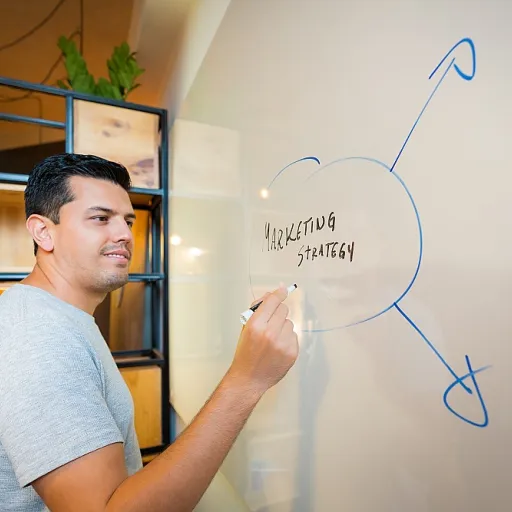
Understanding the management buyout process in the influencer world
What Happens When Influencers Take Control of Their Business?
In the influencer world, a management buyout (MBO) is when the management team—often the influencer and their closest business partners—acquire the company they work for. This could mean buying out an agency, a management company, or even a brand they helped build. The process is common in traditional business, but it’s becoming more relevant as influencers look to gain more control over their assets, operations, and future direction.
During an MBO, the management team typically uses a combination of debt and equity financing to purchase the business from the current owner. This can involve private equity firms, venture capital, or mezzanine financing. The goal is to leverage the company’s cash flow and assets to secure the necessary capital for the transaction. In some cases, a leveraged buyout structure is used, where a significant portion of the price is financed through debt, backed by the company’s future earnings.
For influencers, this process is not just about ownership. It’s about reshaping their business model, gaining autonomy, and making strategic decisions that align with their personal brand and vision. The management buyout journey can be complex, involving financial modeling, negotiations with buyers, and careful planning to ensure the business remains sustainable post-buyout.
- Management buyouts can involve both the influencer and their trusted team.
- Financing options include a mix of debt equity, private equity, and sometimes mezzanine financing.
- Key steps include business valuation, securing capital, and negotiating terms with the current owner.
- Buyout MBOs require a deep understanding of company management, financial modeling, and the influencer’s long-term goals.
Understanding the mechanics of an MBO is crucial for influencers considering this path. It’s not just about the transaction—it’s about setting up a business that can thrive independently. For more on how financial innovation is opening new doors for influencers, check out this insightful look at banking marketplaces and influencer opportunities.
Why influencers consider a management buyout
Key Motivations Behind Influencer Management Buyouts
For influencers, the decision to pursue a management buyout (MBO) often comes from a desire for greater control over their business. As their brand grows, so does the complexity of managing partnerships, finances, and content strategy. Many influencers reach a point where working under a current owner or agency limits their creative freedom and business potential. By initiating a buyout, they can take charge of their company management and set their own direction.
Financial and Strategic Drivers
Financial independence is a major factor. Influencers may see an opportunity to increase their share of profits and equity by moving away from traditional management structures. With access to private equity, venture capital, or mezzanine financing, influencers can fund the buyout and invest in scaling their operations. The combination of debt and equity financing, often used in leveraged buyouts, allows them to acquire full or partial ownership while maintaining cash flow for ongoing business needs.
- Equity and control: Gaining a larger stake in the business and decision-making power.
- Long-term vision: Aligning the company’s direction with personal values and goals.
- Financial modeling: Using robust financial modeling to assess the viability and price of the buyout, ensuring sustainable growth post-transaction.
Market Trends and Industry Influence
The rise of private equity firms and capital buyers in the influencer space has made management buyouts more accessible. Influencers are now seen as valuable assets, with their brands attracting significant investment. This shift mirrors trends in larger companies, where management teams leverage buyouts to reshape business models and operations. Influencers considering an MBO are often inspired by high-profile buyouts in other industries, such as the technology sector, where company management has successfully transitioned ownership through strategic financing.
For more on how financial trends impact influencers, check out this resource on how human resource stocks impact social media influencers.
Preparing for the Transition
Before moving forward with a buyout, influencers and their management team must carefully evaluate the business’s assets, operations, and cash flow. This includes working with finance professionals to structure the transaction, model future earnings, and secure the right combination of debt equity. The goal is to ensure the buyout not only delivers immediate control but also sets up the business for long-term success.
Challenges influencers face during a management buyout
Key Obstacles Influencers Encounter During a Buyout
When influencers move toward a management buyout (MBO), the process can be both exciting and daunting. The transition from being talent to taking control of the business side brings unique hurdles. Here are some of the main challenges influencers face during this transaction:
- Financing the Buyout: Securing the right combination of debt and equity is often the first major roadblock. Influencers must evaluate options like private equity, venture capital, mezzanine financing, or even leveraged buyouts. Each financing model comes with its own risks and expectations for cash flow and future growth.
- Valuing the Business: Determining the fair price for the company can be complex. Influencers and their management teams need robust financial modeling to assess assets, operations, and potential. This is especially true if the current owner and buyers have different views on value or future prospects.
- Aligning the Team: The management team must be unified in vision and strategy. Any misalignment can create friction, impacting negotiations and the success of the buyout. Building trust among managers, buyers, and equity firms is essential.
- Negotiating with Equity Firms: Private equity and other capital providers often have strict requirements. Influencers may find themselves navigating complex terms, such as debt equity ratios, operational controls, and future exit strategies.
- Managing Brand Partnerships: During the MBO process, brand partners may become cautious. They want assurance that the influencer’s business will remain stable and continue to deliver value. Clear communication and continuity planning are critical to maintaining these relationships.
- Maintaining Operations: The day-to-day business must keep running smoothly. Influencers and their teams need to balance the demands of the buyout transaction with ongoing content creation, audience engagement, and partnership obligations.
Learning from high-profile buyouts in other industries, such as the well-known case of a major technology company’s founder leading a management buy, can offer valuable insights. The process often involves a combination of debt and equity, with careful attention to financial modeling and cash flow management.
For influencers, the journey through a management buyout is rarely straightforward. It requires a blend of business acumen, financial expertise, and strong leadership. Staying informed about the latest trends in digital marketing and buyout management can help navigate these challenges. For more on how the digital landscape is evolving, check out the latest buzz in digital marketing.
How a management buyout affects brand partnerships
Shifting Dynamics in Brand Collaborations
When an influencer’s management team leads a buyout, the structure of brand partnerships can change significantly. The management buyout (MBO) process often introduces new decision-makers and shifts the company’s priorities. This can impact how brands perceive the influencer’s business and their willingness to engage in collaborations.
- New management, new approach: After a buyout, the management team may bring in fresh strategies for negotiating deals, pricing, and partnership terms. This can be positive if the team has strong experience in finance, business modeling, or private equity, but it may also require brands to adjust to new processes.
- Financial stability matters: Brands often look for stability in their partners. If the buyout is financed through a combination of debt and equity, or involves private equity firms, brands may scrutinize the influencer’s cash flow, assets, and operations more closely before committing to long-term campaigns.
- Transparency and trust: The transaction can raise questions about who controls the influencer’s business. Clear communication from the management team about the buyout, the company’s direction, and the role of current owners or new buyers helps maintain trust with brand partners.
Negotiating Power and Valuation
After a management buyout, the influencer’s business may be valued differently by brands. The price and terms of collaborations can shift, especially if the management team demonstrates strong financial modeling skills or brings in venture capital or mezzanine financing to support growth. This can enhance the influencer’s negotiating power, but only if the business shows sustainable cash flow and a clear vision for future operations.
Brand Perception and Market Position
Management buyouts can reshape how the influencer is perceived in the market. For example, when a well-known company underwent a leveraged buyout, it signaled a new phase of growth and ambition. Similarly, influencers who complete a buyout may be seen as more serious business owners, which can attract higher-value brand partnerships. However, if the transition is not managed well, there’s a risk of losing existing deals or damaging long-term relationships.
- Brands may seek reassurance about the influencer’s commitment and the stability of the management team.
- Equity firms and buyers involved in the buyout may influence the influencer’s brand image, depending on their reputation in the industry.
In summary, a management buyout can open new doors for brand partnerships, but it also requires careful handling of financial, operational, and relationship dynamics to ensure continued success in the influencer’s business journey.
Building a sustainable business post-buyout
Strengthening Your Foundation for Long-Term Growth
After a management buyout, influencers often find themselves in a new position of authority and responsibility. The transition from being managed to managing the company can be both exciting and challenging. To build a sustainable business after a buyout, it’s crucial to focus on several key areas that will help secure your influence and financial future.
- Reassess Your Business Model: With the management team now in control, take time to review your company’s assets, operations, and cash flow. Financial modeling is essential to understand how the buyout will impact your revenue streams and expenses. This is especially important if you’ve used a combination of debt and equity financing, as maintaining healthy cash flow is vital for ongoing operations.
- Secure the Right Financing: Many management buyouts involve private equity, venture capital, mezzanine financing, or even leveraged buyout structures. It’s important to work closely with finance professionals to ensure your capital structure supports growth without overburdening the business with debt. The right mix of debt equity can provide flexibility while protecting your company’s long-term interests.
- Empower Your Team: The management buyout process often brings the management team closer together. Leverage this unity to foster a culture of collaboration and innovation. A strong team is critical for navigating the challenges of buyout management and for building a resilient business that can adapt to changes in the social media landscape.
- Maintain Strong Relationships with Equity Firms and Buyers: Ongoing communication with private equity firms, buyers, and other stakeholders is key. Their expertise and networks can open doors to new opportunities, partnerships, and resources that can help your business thrive post-buyout.
- Monitor Performance and Adapt: Regularly review your financial and operational performance. Use insights from financial modeling to make informed decisions about pricing, content strategy, and brand partnerships. This proactive approach will help you stay competitive and relevant in the fast-moving influencer industry.
Building a sustainable business after a management buyout is not just about surviving the transaction. It’s about setting up your company for long-term success, leveraging your new position as both influencer and business owner. By focusing on strong management, smart financing, and a collaborative team, you can ensure your influence continues to grow in a rapidly evolving digital world.
Lessons from influencers who have navigated a management buyout
Insights from Influencers Who Have Completed a Buyout
Influencers who have experienced a management buyout (MBO) often share valuable lessons about navigating this complex transition. Their stories reveal both the opportunities and the hurdles that come with taking control of your own business, especially in the fast-paced world of social media influence.
- Preparation is Key: Many influencers emphasize the importance of understanding the financial modeling behind an MBO. Before entering any transaction, it’s crucial to assess your company’s assets, operations, and cash flow. This helps in determining the right price and structuring the combination of debt and equity needed for the buyout.
- Choosing the Right Partners: Whether working with private equity firms, venture capital, or mezzanine financing, selecting the right buyers and financial backers can make or break the process. Influencers often recommend building a management team with experience in buyouts and finance to guide the company through the transition.
- Managing Relationships: The shift from being managed to managing your own company can impact existing brand partnerships. Influencers note that clear communication with partners and the current owner is essential to maintain trust and continuity during the buyout process.
- Balancing Creativity and Business: After the buyout, influencers find themselves juggling creative work with business management. Many have found success by delegating operations to trusted managers, allowing them to focus on content while ensuring the business remains sustainable.
- Learning from Others: Case studies from the world of management buyouts, including high-profile examples like the leveraged buyout of Dell, highlight the importance of strategic planning and adaptability. Influencers who model their approach on proven MBO management strategies are often better equipped to handle challenges.
Ultimately, the journey through a management buyout is unique for every influencer. However, those who invest time in financial planning, build a strong team, and maintain open communication with stakeholders are more likely to create a thriving business post-buyout. The combination of debt equity, careful company management, and a clear vision can transform an influencer’s brand into a long-term, sustainable enterprise.













